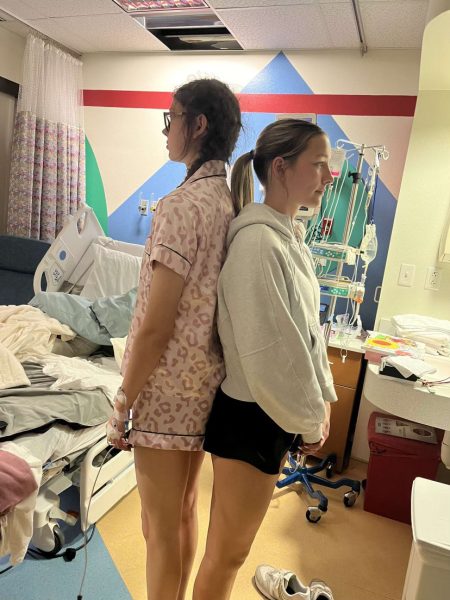Mental health impacts teens, adults

February 14, 2023
With the second semester in full swing, students may be busy with a plethora of extracurricular activities including basketball, powerlifting, track, one-act play, UIL academics and more. Amid all of these activities, however, students might consider also being conscious of their mental health to avoid stress and burnout.
Counselor Leslie Graham encourages students to maintain their mental health along with physical health and said it is essential in the second semester when weather is all over the place and tons of sickness going around.
“Don’t forget the importance of sleep, exercise and a healthy diet to keep your mental health on track. Prioritize what needs to be done and don’t wait until the last minute,” Graham said. “Procrastination adds stress and anxiety sometimes when it could be avoided just by planning ahead.”
In a recent survey, 89.5% of students and teachers agreed that school work and activities cause a strain on their mental health.
Senior Gunner Smith said a great way to deal with the abundance of activities, whether they be sports or academics, is to devote time to your hobbies.
“Personally, I like to play video games like ‘Madden NFL 23’ with Chris [Allen], watch YouTube and catch up on sleep to get my mind off things,” Smith said. “I’d recommend exploring different hobbies because they definitely help distract from the stress of school.”
Having to devote her time to both school work and parenting, senior Jennifer Ellis said she still can find ways to avoid extreme stress and exhaustion.
“I separate my life in and out of school. Once I walk out of the building I only focus on my personal life; thinking about school when I’m not there is too much stress for me,” Ellis said. “I am also able to still find free time, when possible and watch or read something that interests me.”
Graham said mental stability is also important for teachers during the second semester as much as it is for students.
“Set boundaries! That could come in many different forms like giving yourself time frames to focus on work and times to turn your brain off from work,” Graham said. “Make time to have fun and to spend time with your family. Turn your work email off of your phone. Take the time to disconnect from school in non-working hours.”
FCCLA sponsor and family and consumer sciences (FCS) teacher Donette Odom said she uses various tactics to prevent work stress.
“A strategy I use to help deal with any kind of stress is to learn and understand where the problem is coming from,” Odom said. “Other things I do to boost my mental health include eating healthy, exercise, getting out into nature and studying new things.”










